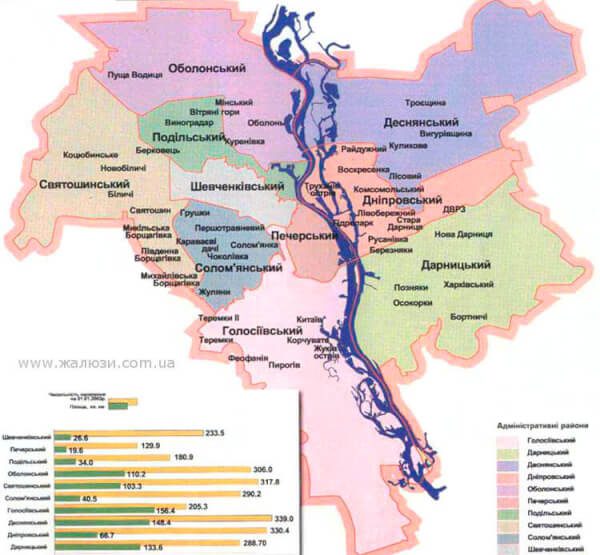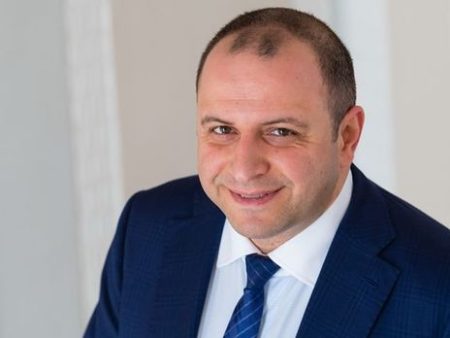Kyiv's old residential buildings will consume part of the budget // KV collage
A program to renovate old residential buildings in Kyiv has started, with the city planning to allocate 494.8 million hryvnias from the budget. The funds will be used to inventory and survey old buildings such as “Khrushchev” and “Stalinka”, with the aim of having investors restore them. However, there are concerns that the focus of the program is solely on surveying the buildings, as the city has not yet confirmed the procedures for selecting investors or established requirements for the reconstructed buildings.
It has been revealed that KVThe Kyiv City Council has approved the Program for the Comprehensive Reconstruction of Outdated Housing Stock in Kyiv through the resolution No. 5818/5859 dated December 8, 2022.
The draft of the program was developed by the PE “Institute of Urban Studies” between 2019 and 2022 by order of the Department of Construction and Housing of the Kyiv City State Administration (KSCA). On June 29, 2022 project it was registered for approval with the Kyiv city council – the commission of the city council on housing and communal services and the fuel and energy complex (housing and fuel and energy complex) was the official submitter. On October 27, 2022, the Moscow City Council supported the document in its first reading, but decided to make adjustments together with the Kyiv City State Administration. The final draft was submitted for approval in the second reading on December 8 to the Kyiv City Council. draft decision was presented at the session hall of the Kyiv City Council for final approval in the second reading.
What is the program about
When preparing the draft program for the second reading, the city authorities made several amendments that altered the way the program would be carried out, but the main purpose remains the same.
The city leaders intend to reconstruct all 256 quarters of the outdated housing stock in Kyiv and prioritize 15 quarters for renovation. These priority areas are dominated by old residential buildings, have existing local urban planning documentation, and are free of significant planning restrictions.
According to the decision, the city authorities plan to allocate funds in the amount of UAH 494.8 million from the city budget for the implementation of the program. The KSCA intends to use these funds until 2026 only on the inspection of houses of obsolete housing stock (at the rate of 100 thousand hryvnias for the inventory of one building). The program notes that the Department of Construction and Housing of the Kyiv City State Administration must “ensure its implementation within the scope of expenditures provided for in the budget of Kyiv for the relevant years.” That is, at the end of each year, the city authorities will separately decide how much budgetary funds they can or want to allocate for such an “important” inventory.
The Program requires a funding of UAH 15 million from the budget of Kyiv for implementation this year. The city budget for 2023 does not currently have a line for allocating funds for this Program, so it is not clear if the city authorities have provided the funding or if it is hidden among other expenses of the Department of Satisfaction and Housing of the KSCA.
The city authorities decided to make the Program open-ended based on the suggestion of the Secretary of the City Council, Vladimir Bondarenko. Vladimir Bondarenko The decision to remove the "temporary boundaries" that set the "deadline" for the operation of this document in 2026.
The city authorities have not yet decided on the procedure for reconstructing the obsolete housing stock in Kyiv, which was already pointed out when the draft Program was approved in the first reading. The decision only specifies that the Department of Construction and Housing of the KSCA should organize a competition to attract investors-developers for the reconstruction and replacement of the housing stock.
Outdated housing stock in Kyiv will consume a portion of the budget.
The approved decision lacks specifics on determining the priority of reconstruction for certain quarters, the procedure and conditions for the investment competitions, requirements for the reconstructed houses, resettlement of residents, and other important details.
The document did not instruct the KSCA to develop a Regulation or Procedure for holding such competitions, despite remarks from the Department of Legal Support for the Activities of the City Council. The deputy corps ignored this claim.
The Department of Construction and Housing of the KSCA recommended approving a mechanism for holding these competitions. The officials had proposed forming conditions for tenders based on the results of an inventory of objects, but this rule was not included in the final decision.
Additionally, the approved Program does not include a rule stating that the reconstruction of old housing areas should be based on the results of an inventory. The requirements for conducting a building survey and their reconstruction based on the inventory are scattered across different parts of the decision, making it seem disconnected. Despite this, the Kyiv City Council supported the secretary's proposal to cancel a previous decision on the inventory of old housing. This leaves uncertainties about the inventory results and whether the city will have to allocate funds twice for the same events.
Furthermore, the City Council chose to ignore a valid point from the Office of Legal Support, which highlighted that a new draft law significantly changes the reconstruction procedure for old housing areas. The management acknowledged that the approaches used to develop the program may become outdated. However, this fact did not seem to concern the deputy corps of the Kyiv City Council.
All of these circumstances indicate that the main goal of this Program is not the reconstruction of old 'Khrushchev' and 'Stalinka' neighborhoods in the capital, but rather the allocation of budgetary funds for the house inventory. The lack of clear mechanisms for investment competitions for the reconstruction itself could result in manipulations by officials and potential investors, leading to corruption scandals and opposition from residents of these tall buildings.
Outdated housing stock. background
Recall that on March 3, 2016 the Kyiv City Council decision No. 119/119 instructed the KSCA to exercise a number of powers in the field of comprehensive reconstruction of old housing areas. According to this order, officials must take part in developing and implementing programs for the reconstruction and replacement of such housing areas, and designate the areas for neighborhood reconstruction. order No. 828 designated the Department of Construction and Housing of the KSCA as the customer for developing the draft Program for the Comprehensive Reconstruction of Quarters (Microdistricts) with outdated housing in Kyiv, to be submitted to the Kyiv City Council.
The draft program was developed five years later to fulfill the two decisions of the city authorities. Several factors contributed to this delay.
So, the city leaders at that time expressed dissatisfaction about the absence of a legal framework that would allow the execution of this program. They specifically asked the Cabinet of Ministers of Ukraine to approve a standard investment agreement that would attract private investors to rebuild houses. In 2018, the city authorities requested the government to give local governments the authority to approve such agreements.
Another significant issue that has been and may continue to hinder the achievement of this program's goals is the lack of temporary housing for residents who need to move during construction work on emergency houses and houses being rebuilt.
In June 2017, the commission of the Kyiv City Council instructed the Department of Construction and Housing of the Kyiv City State Administration to create a Regulation on old communal housing in the capital, but this document has not been approved yet. The capital city state administration ignored these requirements for several reasons. several reasonsone of which is that, according to the law, the responsibility for temporarily resettling Kiev residents during reconstruction should be on investors-developers.
Recall that for 2017 in the capital officially counted 2 thousand residential buildings with a total area of about 7.5 million square meters. meters that have exhausted their technical resource and are subject to demolition or major reconstruction. Now the relevant Program notes that in fact we are talking about more than 4.9 thousand of these high-rise buildings.
Recall PE “Institute of Urban Studies” (developer of the mentioned Program), has connections with Andrey Vavrish, the former deputy director of the Department of Urban Planning and Architecture of the KSCA (2010-2015) Development, through its founder LLC “Terra Project”. Terra Project received the majority of orders for developing Detailed Territory Plans (DTP) in the capital, according to sources in the Kyiv City Council and the Kyiv City State Administration. This allowed them to earn money from the Kyiv City State Administration. The Department of Construction and Housing of the KSCA is headed by Boris Worker
. Vyacheslav Nepop, the Deputy Chairman of the Kyiv City State Administration, has been overseeing this department's activities since 2018. He was the ex-director of the KP “Zhilinveststroy-UKB” and a deputy of the IV, V, VII, VIII, and the current IX convocations of the Kyiv City Council. Boris Worker heads the department since July 2, 2021. Since December 8, 2020, the commission of the Kyiv City Council on housing and communal services and the fuel and energy complex is led by
Alexander Brodsky , and it comprises 7 deputies. In the last term of the Kyiv City Council (2015-2020), Brodsky was in charge of the commission on trade, entrepreneurship, and regulatory policy as a member of the Unity faction. (in the collage on the left). This body consists of 7 deputies. In the last term of the Kyiv City Council (2015-2020), Brodsky, being a member of the Unity faction, headed the commission on trade, entrepreneurship and regulatory policy.
Ivan Kulik, translation Skeleton.Info
DOSSIER: Vyacheslav Nepop: “flayer” from the construction mafia in Kyiv. PART 1



